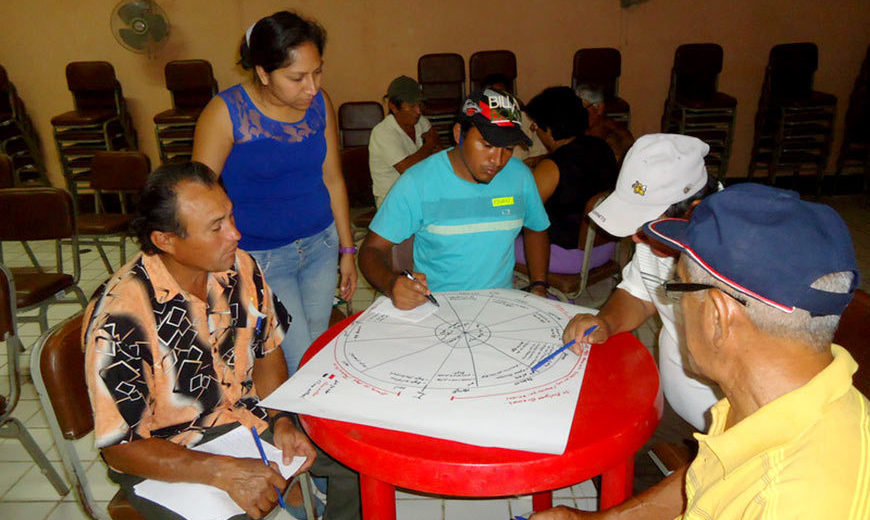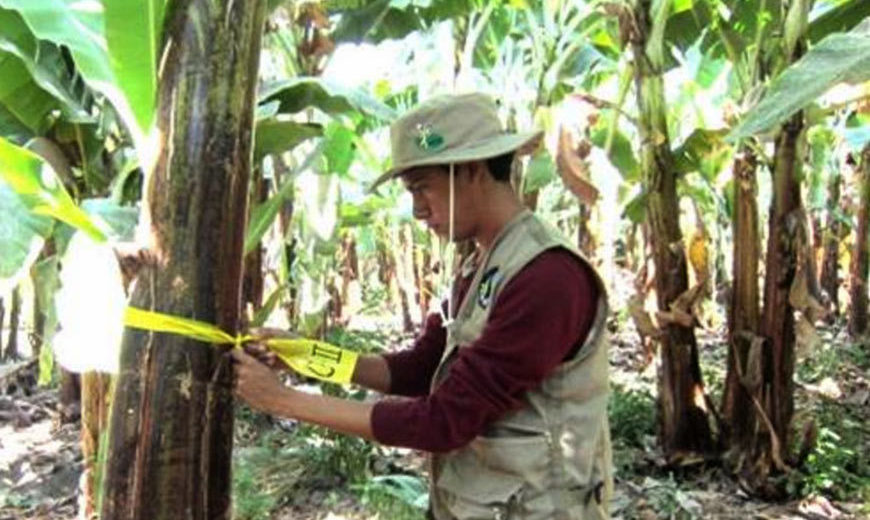15 May 2015
Peruvian Banana Farmers Adept at Adaptation
Organic banana farmers in Peru are seeing the effect of climate change and beginning the process of adapting with help from Kaufland, a German chain of super markets, and Fairtrade International.

Image: Fairtrade International
In mid-2013 organic banana producers from Piura in Peru were hit by a severe outbreak of red rust thrips, believed to be triggered by climate change. These tiny insects eat banana flowers and young bananas, leaving red spots on the skin and making them unsuitable for export. The infestation affected 40% of banana farms and reduced exports by 30%.
This is just one way climate change will have a great impact on the banana supply chain, affecting banana producers the most, but also traders and retailers. Fairtrade considers that all in the supply chain have a responsibility to take action in response to climate change and support farmers as they adapt to a changing climate.
Fairtrade’s Climate Change Programme aims to increase resilience and adaptation capacity of farmers whilst securing sustainable production.
Responding to this challenge Fairtrade sponsored by Kaufland, German supermarket winner of the Fairtrade award 2014, and in partnership with the Association of Small Organic Producers from Querecotillo (APOQ) and the National University of Piura, implemented a one-year project in Sullana, Peru to help organic banana producers find local solutions to control red rust thrips, raise awareness and increase resilience to climate change.

The project had four parts – first, 200 farmers got a better understanding of climate change, its impacts on banana production and their region, and identified adaptation measures for their banana plots, through a trainer of trainers approach.
At three field schools, the farmers were trained on sustainable agricultural practices, appropriate fertilization considering soil components and structure, integrated pest management and monitoring, and cultural management of the banana plant and plots.
At the end of the project 80 percent of participants were using practices like mulching, pruning, deflowering, removal and protection of banana hands. Pests and diseases were under control, including red rust thrips, and the amount of crop discarded for export was at a minimum.
"With the project I learned how to best manage my plot. I also gain recognition and praise from my fellow farmers, which encourages me to keep improving because one never stops learning," Felizandro Bellasmin Ogoña. “It is important to keep on training farmers.”
Two demonstration plots served as models of good management where participants could see fertilization, organic pest monitoring and control and cultural management practices in action. Plus, two different irrigation systems showcased ways to reduce consumption of water as resources become scarcer. A system of sleeves and gates was installed in one plot and a sprinkle irrigation system in the other. Both irrigation systems were operated by trained technical support from APOQ as part of the project.
Finally, students of the National University of Piura researched organic and biological control of red rust thrips. They evaluated use of colour traps and plants around the banana plots. They also tested commercial organic biocides and vegetable and plant extracts available locally to control the populations of thrips. As a result, they recommended to producers that they plant live fences to increase biodiversity on the plots and use traps to control thrips. The commercial controls distributed by APOQ to farmers were effective and they also recommended using local plants and garlic extracts to repel the insects.
APOQ will apply and share this knowledge with other small organic banana producers of Piura to begin tackling the effects of climate change, secure their livelihoods and our banana supplies for years to come. Peru is very vulnerable to climate change and farmers will face higher temperatures and longer periods of droughts and floods. This is one step towards climate resilient supply chains, but there is more to be done to increase resilience of producers.

Image: Fairtrade International